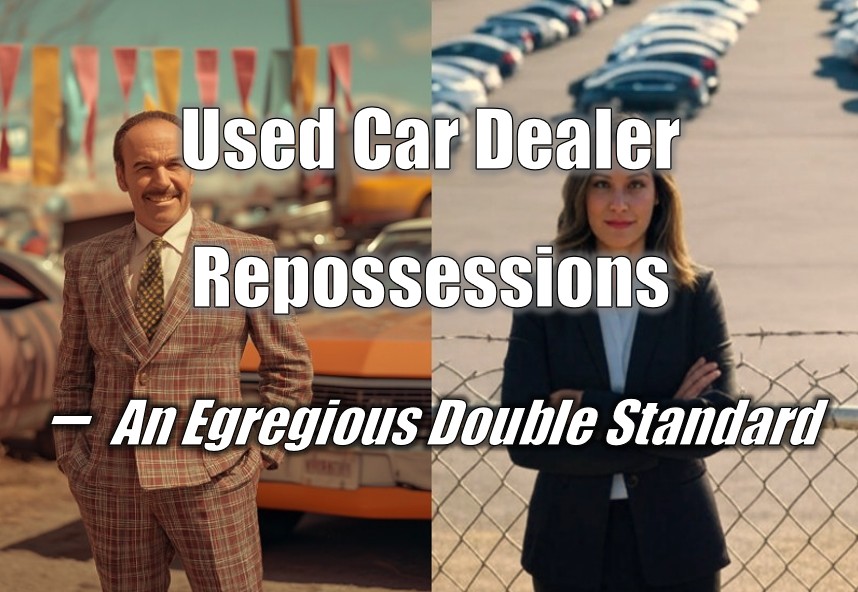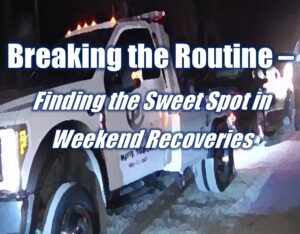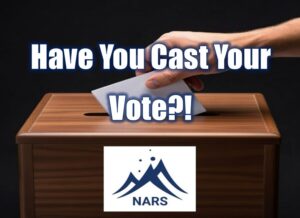Limiting Repossessions to Professional Repossessors – A Matter of Life, Death, and Liability
EDITORIAL
For over a century, laws regulating who is allowed to repossess vehicles has been sparse or non-existent wild west filled with free lancers, tow companies, private investigators and used car dealers running amok with often deadly and litigious results to both borrowers, lenders and these untrained parties themselves. At the same time, the repossession industry has been fighting diligently to create a more professional and compliant process to avoid these same perils. All the while used car dealers continue to perform these functions outside of the established industry standards. It is far past due that this double standard ends and these untrained, uninsured and dangerous players are reined in and brought to heel.
A Long History
Ever since the first steam carriage was repossessed in 1867, the act of self-help repossession by lenders was common place. Fast forward to 1919 when the General Motors Acceptance Corporation (GMAC) began offering auto loans nationwide, and lenders were still conducting their own repossessions.
Jump ahead again to 1949 and you can see repossession industry pioneer Edward Dunleavy working for the Domestic Finance Company where along with collecting, he also conducted repossessions. And again, jump forward to the early 1970’s and you can see another industry pioneer Millard Land working for Ford Motor Credit before dedicating himself to repossessions alone in 1973.
Other than accounts too distant to repossess themselves or difficult accounts, lenders traditionally handled a very large portion of their repossessions themselves until at least the early 2000’s. So, why did they quit? Simple, it was too dangerous and time consuming.
Throughout this period repossession history is littered with the unfortunate tales of bank collectors shot and killed in the process of repossessions and just as many lawsuits were filed on them going all the way back into the 1920’s. Over time, the risks proved to outweigh the benefits and lenders moved away from the dangers and let the professionals handle it and pass the expense on to the borrower.
Unfortunately, the self-financed used auto sales industry, aka the Buy Here Pay Here (BHPH) industry has still not caught on after all these years, and with often disastrous results.
A Pattern of Peril
Earlier, we reported of the murder conviction of a 75-year-old used car dealer who had shot a borrower to death in Texas during a repossession attempt. Less than a year ago, we also reported the armed kidnapping conviction of the father of a used car dealer in Florida who had used a gun during a repossession.
Just over a year ago we shared the story of another used car dealer in Texas who had the flesh torn from his legs by a borrower during a repossession. And of course, almost three years ago we also shared the sad story of yet another Texas used car dealer who was shot during a repo and eventually died.
Considering the lack of reported employer names of many of the fallen Repossessors that we also report, it is also possible that some of these men fall into this category themselves.
These are just a small handful of the stories reported here, but if you troll the police blotters and internet as I do, you will find that although the reported details tend to be thin, the volume of violent incidents occurring by used car dealers attempting their own repossessions through the years is huge.
Lessons in Professionalism
The lack of mandatory training in repossession safety and compliance exacerbates the problem. Dealers, focused on recovering assets rather than managing compliance and avoiding volatile human interactions, have shown at times to resort to aggressive tactics leading to breaches of the peace or worse.
Why, because these are not professionals. These are people untrained in repossession safety, compliance, conflict de-escalation tactics and situational awareness. These are often owners with a personal financially vested interest in the vehicle’s recovery. So much so that the lines of safety and compliance become blurred or non-existent.
How the self-help repossession process can exist without the safety guardrails of training and insurance is confounding and frankly casts a dark shadow on the compliant and trained professional repossession industry.
The Quantitative Value of Training
Training is no longer an option. Below are several examples from several of the nation’s most dangerous industries who have shown quantitative numerical improvement in decreases in death and injury through required training. Considering the dangers of the repossession process, there is ample evidence to support this need.
- Commercial Fishing – The National Institute for Occupational Safety and Health (NIOSH) reports a 50% reduction in fishing fatalities with trained crews (NIOSH Fishing Safety).
- Construction – The Occupational Safety and Health Administration (OSHA) notes that trained construction workers lower accident rates by up to 40% (OSHA Construction Safety).
- Policing – The Police Executive Research Forum (PERF) data shows trained officers reduce use-of-force incidents by 28%, suggesting a higher untrained baseline. PERF Use of Force.
Overall, trained personnel reduce fatalities and injuries by 25-50% across these industries.
So where does the repossession industry lie in the most dangerous industries list? I’ll tell you all later in a deeper article on the topic. I’ll give you a hint, it’s really close, but it is complicated.
While it is difficult to say with quantifiable numeric certainty just how much impact repossession safety and compliance training plays on events that unfold in the field during repossessions, given the previous case studies combined with the long history of dealer committed breaches of peace, common-sense logic concludes that it does and is likely significant.
The evidence of the dangerous nature of untrained persons conducting self-help repossessions has long been on full display by the numerous stories of dealers pulling guns, dragging borrowers from vehicles, and committing vehicular assault during repossessions with alarmingly high frequency.
Proposals
This frequency as well as the disproportionate volume of these incidents by used car dealers suggests that the current level of training and insurance to conduct “self-help repossession” is inadequate. Considering these apparent deficiencies and the emotional and physical risks inherent in the repossession process, they do not appear to be an industry equipped to handle the dangers it entails.
So, what is the remedy? Well, it’s pretty common sense but does face stiff headwinds.
- Prohibit Creditors of any kind from performing Self-Repossession
- Proposal: Amend state laws to bar creditors, including car dealers, from directly repossessing vehicles, mandating that only third-party licensed, trained and insured professionals perform the task. This should include stiff penalties including the invalidation of debt in the absence of compliance.
- Rationale: Dealers are inherently conflicted in that they’re emotionally and financially invested in the outcome, increasing the risk of rash decisions. Professional agents, as neutral parties, are trained to prioritize de-escalation over confrontation. A dealer’s direct vested financial interest combined with a lack of training can spiral into tragedy, a risk mitigated by outsourcing to experts.
- Impact: This reform would shift some liability away from dealers and protect their businesses while ensuring public safety. It aligns with the principle that “professionals hire professionals.” This is a repossession, not an oil change done in your own garage.
- Require Specific Repossession Insurance for All Repossession Activities Performed
- Proposal: Mandate that all entities performing repossession activities carry appropriate compliance and safety training as well as industry required insurance to cover damage or injuries during the process. Again, this should include stiff penalties up to incarceration and the invalidation of debt for non-compliance.
- Rationale: Insurance protects consumers and creditors alike, offering recourse for mishandled repossessions or injuries. Dealers acting solo and their freelance untrained agents, typically lack such coverage, leave victims, their employees and persons engaged in their repossessions and their families with little remedy in the event of wrong doing. Adding a criminal prosecution element removes this avoidance tactic. Requiring professional insurance provides a financial safety net that discourages illegal activity, protects all and incentivizes professional practices.
- Impact: This would incentivize hiring professionals, as dealers would face higher personal risk without insurance, while ensuring compensation for incidents like wrongful death or property damage when they do.
Objections
Of course, requiring such strict limitations to the self-help repossession process would come with some pretty fierce opposition. Amongst those at the national level would be the National Independent Automobile Dealers Association (NIADA), National Automobile Dealers Association (NADA). Then of course, the state level used car dealer associations would also fight against this tooth and nail.
Amongst their arguments would most likely be:
- Claims of overreach and over regulation
- Sufficiency of current framework
- Economic impact
- Impact on operations
The NIADA and NADA are the two most prominent used car dealer associations in the nation and have some deep pockets and connections in both Washington DC as well as in every state capital. Their exemption from CFPB oversight at the agencies inception in 2009 shows just how powerful they really are.
Considering the historically poor public image they’ve presented over the past century, it’s all pretty amazing how under regulated they are. Other than incident specific lawsuits and arrests, there has been little or no real attempt to rein them in. While I doubt any of what I’ve written will move the needle in that direction legislatively, I just offer it up as food for thought.
While I have focused on the used car industry, I do not discount the same issues as they apply to tow companies, salvage yards and any person or business not specifically trained and insured as previously mentioned who are in constant encroachment in performing voluntary repossession assignment work. A repossession is a repossession no matter what the terms of recovery are. The risk is always there.
An Egregious Double Standard
While every reputable lender and forwarder maintains the requirements of compliance and safety training, proper insurance and often drug testing, there still lies this glaring exception to public safety. While they save upt o $500 or more a repossession by doing it themselves, wouldn’t it be reasonable to hold them to the same standards as the professionals who do this for a living?
Would it be of considerable expense and time for used car dealers to be held to these same industry standards? Yes, it would, but the rest of the lending and repossession world has been dealing with it for decades now and they are there for a reason.
While the professional lending and repossession communities have paved the way and implemented these modern levels of compliance in the name of public safety and sound business practices, we still have far too many of these small players operating as though it was still 1970. This must end.
In the end, If lenders, the repossession industry and our elected officials are truly serious about making repossession activity more professional, compliant and accountable, eliminating these double standards is non-negotiable. Repossessing vehicles is a dangerous activity for both the people conducting them as well as for the public.
It is time to end this dangerous double standard and ensure that only properly trained and insured professionals are conducting repossessions, just as is required in any other high-risk industry.
Just my opinion. I’m done with my ranting. Carry on.
Kevin Armstrong
Publisher











More Stories
Bad Apples in the Repossession Industry
Why Self-Help Repossession Is Taken for Granted — and Why Losing It Would Hurt Consumers Most
A Necessary Distinction: Financial Oversight vs. Financial Control
When Oversight Becomes Overreach: Why Demanding Subcontractor Financials Is Wrong
Snitching vs. Standing on Principle: Calling Out Bad Actors in the Repossession Industry
Lender Interference in Georgia Repossessions